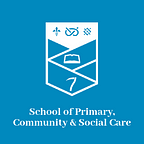Tackling physical health inequalities in imprisoned women with serious mental illness
Following the award of funding from the ‘Closing the Gap’ Network (CTG), which aims to improve physical health and reduce the health inequalities for people with severe mental illness, https://www.york.ac.uk/healthsciences/closing-the-gap/about-us/
this project aims to develop a new, multidisciplinary (and cross-institution) collaboration of clinicians, researchers, individuals with lived experience, charities to address the physical health inequalities of women in prison.
Professors Tammi Walker (Teesside University) and Carolyn Chew-Graham (Keele University) co-hosted a virtual meeting, with 22 participants. The aims of the day were to:
• Produce a visual output from today’s event
• Develop one or two potential research projects in readiness for any future, related funding calls
To help with the first aim, Tom Bailey produced graphics throughout the day.
We were so lucky to have Joyce Kallevik and Penny Bennett from WISH, the only national user-led charity working with women with mental health needs in prison, hospital and the community, on the day.
We discussed what we meant by ‘severe mental illness’ (SMI) and reflected on particular concerns of women with ‘emotionally unstable personality disorder’ (EUPD) — who may have the same risks of poor physical health, associated with lifestyle and medication. Lack of access to a good diet and opportunities to increase physical activity further exacerbate health inequalities. We raised the problems of loss and trauma that will have impacted on women’s lives in the past and continuing into imprisonment. Addiction and the menopause were topics which were raised as further neglected areas. Finally, the impact of COVID-19 restrictions, meaning that women may have been kept in their cells for 23hours a day, will have exacerbated all these problems. Barriers to improving physical health included stigma, shame (women may not be used to be looked after) and diagnosis-driven care. The phrase ‘inequality of offer’ was key — services not joined up.
We tried to define the key priorities and participants described examples of good practice — well-being and peer-led approaches, interventions delivered by ‘health champions’ with holistic approaches, combining mental and physical health and social contexts. It was suggested that whilst broader interventions might be useful, there needed to be tailoring and flexibility for specific groups, such as befriending interventions in older women, Hepatitis C in drug users, and particular institutions.
The TEWV NHS ‘CHIME’ acronym, which underlies all services, was discussed and praised:
Connectedness
Hope and optimism
Identity
Meaning
Empowerment
We then moved onto suggest what the research questions are, which we might wish to take forward as a group. There was an emphasis on the role of informal support from fellow prisoners already plays in supporting women. It was suggested that there has been little previous research in this area, so research questions might be ‘how do women prisoners seek help?’, ‘what is the place of informal support?’, ‘what’s working and what’s not working?’.
We agreed that we would take a couple of ideas forwards, work in small groups and develop funding applications — starting small but being inclusive and responsive.
This work will sit under the ‘Primary Care Special Interest Group’ of the CTG, a group in its infancy, but seeing this as a valuable step forward in meeting the aims of the CTG in a particularly vulnerable group of women.
The meeting ended on time (which is vital in virtual meetings) and Tammi and Carolyn will re-group and propose the work to be taken forwards — so watch this space.
Carolyn Chew-Graham .@CizCG
Tammi Walker .@drTammiWalker
